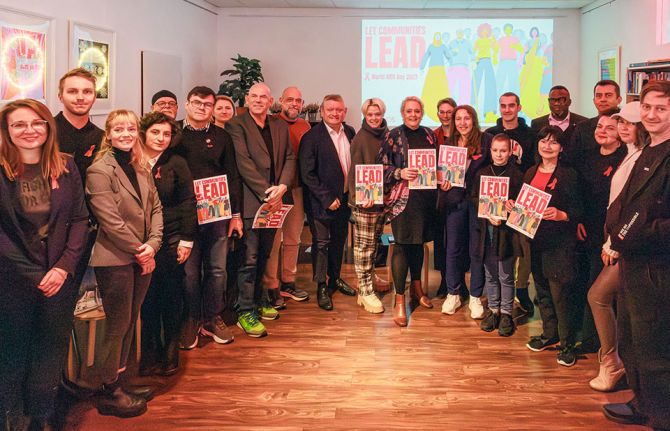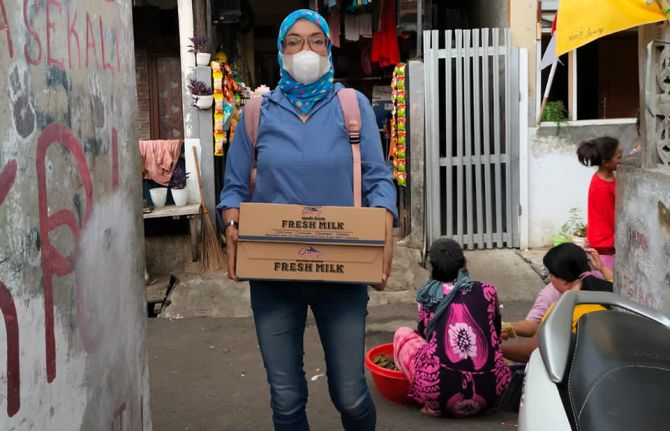
Feature Story
4th Global Partners Forum on Children Affected by HIV and AIDS
08 October 2008
08 October 2008 08 October 2008
200 delegates from 42 countries met in Dublin, Ireland on the 6th and 7th October 2008 for the 4th Global Partners Forum on Children affected by HIV and AIDS.
Credit: UNAIDS
In order to review progress, set global priorities, and make commitments for children affected by HIV, 200 delegates from 42 countries including leaders in government, civil society and UN agencies met in Dublin, Ireland on the 6th and 7th October 2008 for the 4th Global Partners Forum on Children affected by HIV and AIDS.
The Global Partners Forum was established in 2003 to build momentum in fulfilling global commitments for children affected by HIV as was stated in the United Nations General Assembly 2001 Declaration of Commitment on HIV/AIDS and the Millennium Development Goals.
The current definition of children affected by HIV (UNICEF and UNAIDS) are those under 18 years of age who are living with HIV or have lost one or both parents due to AIDS or whose survival, well-being or development is threatened or altered by HIV. However, in hyperendemic countries where HIV prevalence exceeds 15% most children are directly or indirectly affected by AIDS.
According to the latest UNAIDS report on the global AIDS epidemic, the number of children living with HIV has increased from 1.6 million in 2001 to 2 million in 2007, 90% of which live in sub-Saharan Africa where nearly 12 million children under 18 have lost one or both parents to AIDS.
The 4th Global Partners Forum, co-hosted by the Government of Ireland, UNICEF and UNAIDS, aimed to renew the commitment of international partners to accelerate support for the protection and care of children affected by HIV, report progress and highlight good practices identified since the 3rd Global Partners Forum in 2006, as well as to produce a participant-endorsed communiqué defining priorities for the next two years.
The meeting was opened by the Minister of State for Overseas Development, Peter Power, T.D. and a keynote address was given by An Taoiseach Brian Cowen, the Prime Minister. Other keynote speakers included the First Lady of Honduras Xiomara Castro de Xelaya, and HIV activist and singer/songwriter Annie Lennox. The meeting differed from many others by the presence and active contribution of children from western and eastern Europe, Asia, Africa, and Latin America, including some infected and affected by HIV.

Despite efforts to care and protect vulnerable children, exclusion, stigma, and discrimination of children affected by HIV continue to be common challenges in most countries.
Credits: UNAIDS
Children’s vulnerability to the epidemic was captured in the evidence-based synthesis paper presented at the forum by UNICEF to promote awareness and to inform the discussions. Priority issues were further elaborated during panel discussions addressing topics such as family-centered care, strengthening national responses for the most vulnerable children, and quality programming at the community level. Although it was acknowledged that there has been progress in global efforts for children affected by HIV, it was also recognized the severe remaining constraints which make it impossible for some children to realize their human rights.
Evidence from the synthesis paper and discussions at the forum, including contributions from the children, highlighted that despite efforts to care and protect vulnerable children, exclusion, stigma, and discrimination of children affected by HIV continue to be common challenges in most countries. Stigma has been cited as a reason for children not being enrolled in school, receiving care, or being adequately served by programmatic responses.
Attending school is essential to the development of skills and acquisition of knowledge to enable young people to reach economic and social fulfillment. Schools also have the protective effect of educating children about HIV and how to avoid infection. However, HIV poses several constraints that prevent children from going to school or forces them to an early drop out. For instances, many children become responsible for the care of their siblings and other family members when parents are debilitated by poor health. The need to provide food or generate income prevents these children from attending school while at the same time increasing their vulnerability to HIV. This vulnerability represents part of a vicious cycle: their circumstances put them at high risk for exploitation and abuse, and therefore exposure to HIV.

Schools also have the protective effect of educating children about HIV and how to avoid infection. Credit: UNAIDS
Evidence presented at the 4th Global Partners Forum showed that families are bearing the bulk of the costs for infected children. Therefore, families under stress through chronic poverty, labor constrains and facing the impact of illness and death, need external assistance. In response to these challenges, a number of countries are beginning to scale up cash transfers, as part of a social protection package, to alleviate poverty and to increase access to essential services. Such social protection has been shown to be feasible even in resource-constrained countries with high HIV burdens.
Even though the main mode of HIV transmission, and the extent of HIV-related vulnerability among children may differ from region to region, the response challenges were seen to be the same, such as fear of HIV testing by parents, lack of access to treatment for children, and lack of social and psychological support.
The messages of the meeting and the action points were summarized by a communiqué which was presented, debated and adopted during the plenary. It recognized that more information and data were now available and the reality on the ground is better understood to inform action. Based on the evidence presented, the communiqué highlighted four priority action points: the well-being of children and parents infected by HIV; strengthening families and communities as units of prevention, treatment, care and support; increasing effectiveness of programs, services and resources; and human rights for vulnerable children.
Participants committed themselves to implementing the action points of the communiqué, to monitor their progress, and to hold themselves accountable to children affected by HIV. UNAIDS committed to work with governments, the UN family and civil society to put children and families at the heart of the response to HIV through efforts at global, regional and country level.
4th Global Partners Forum on Children Affected by
Cosponsors:
Partners:
Unite For Children. Unite Against AIDS
Press centre:
Speech by Paul De Lay, UNAIDS Director, Epidemic Monitoring and Prevention Department - 4th Global Partners Forum on Children affected by HIV (pdf, 42 kb)
Read final communique (pdf, 53 kb)
Publications:
2008 report on the global AIDS epidemic
Children and AIDS - Second Stocktaking report (pdf, 2.5 Mb)



